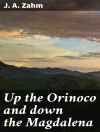The ‘Personal Narrative of Travels to the Equinoctial Regions of America’ spans three volumes of rich exploration across the Americas, weaving a tapestry that celebrates the vibrant diversity of natural landscapes and cultural interactions. This anthology, notable for its multidimensional approach, offers readers a glimpse into the expansive and often unpredictable tapestry of the equatorial ecosystem. Through its medley of literary styles, from meticulous scientific accounts to evocative natural descriptions, the collection captures the inexhaustible variety of the region’s flora, fauna, and societies. Each piece in these volumes stands out for its capacity to transport readers through dense jungles, awe-inspiring mountain ranges, and bustling indigenous markets. This anthology is the combined genius of Alexander von Humboldt and Aimé Bonpland, two pioneering figures whose journeys across the equinoctial regions have indelibly impacted the scientific community. Their work aligns with the Age of Enlightenment’s spirit of discovery and cross-cultural understanding. Driven by unyielding curiosity, the narratives embody a confluence of European and indigenous perspectives, further enriched by Humboldt and Bonpland’s backgrounds in natural science and ethnography, marking a seminal contribution to the deepening of environmental knowledge and cultural appreciation. For those eager to explore the myriad facets of the New World through the lens of two remarkable explorers, this collection offers an unparalleled opportunity. It stands as a profound educational resource, offering insights into the interplay between human civilizations and nature. Readers will find themselves enriched by the anthology’s capacity to illuminate a wealth of perspectives and foster dialogue, transcending the boundaries of traditional travel narratives.
Про автора
Friedrich Wilhelm Heinrich Alexander von Humboldt (1769-1859), more commonly known as Alexander von Humboldt, was a Prussian polymath, geographer, naturalist, explorer, and influential proponent of Romantic philosophy and science. He is particularly renowned for his extensive travels and scientific studies in the Americas. Humboldt’s work laid foundational stones in several fields including biogeography, meteorology, and geology. His writing style is characterized by a blend of rigorous scientific description and poetic narrative, as evidenced in his seminal work ‘Personal Narrative of Travails to the Equinoctial Regions of America’ (Vol.1-3), which describes his five-year expedition across Latin America. This profound narrative is not only a detailed account of his scientific observations but also a reflection of his philosophical thoughts on nature and mankind. Humboldt’s contributions went beyond his writing; his quantitative work on botanical geography laid the groundwork for the field of biogeography. The profound impact of his integrated approach to science and his holistic view of the world’s ecosystems can still be felt in contemporary environmental thought. Humboldt’s legacy is preserved in the plethora of natural features and species named after him, underscoring his enduring influence on the natural sciences.












